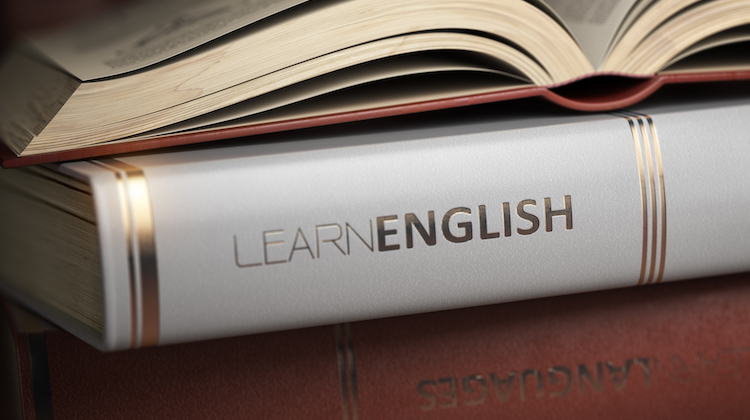English pronunciation is already hard enough, but what about words like you’re and your, or there and their – words that sound exactly alike but are spelled differently and have different meanings.
These types of words are called homophones. By definition, a homophone is a word that has the same exact pronunciation as another word in English, but each of the words has different spellings and meanings. For example, the number one sounds exactly like the past simple verb won, but each has very different meanings.
Guess what? There are more than 6,000 homophones in English! In this blog, I want to help you learn some of the homophones that I’ve seen my students struggle with most.
KNOT and NOT
A knot is what forms when you tie a piece of rope, string, or fabric to itself or something else. When you tie your shoes, you make a knot. This word sounds exactly like the word not, the word used to negate verbs and phrases.
For example:
John: “Why is there a knot in my shoelaces?”
Shelia: “What? There’s a knot! I did not tie the knot!”
BAND and BANNED
A band is a group of people, generally musicians who play music together. Band can also mean a flat, straight piece of material. This word sounds exactly like its homophone banned, which means to forbid something or someone from doing something.
For example:
John: “What time is the band playing tonight?”
Shelia: “The tickets show that the band will start playing at midnight, but I don’t know how that’s possible. Live, loud music after midnight is banned in the city!”
EFFECT and AFFECT
The previous example of prophet and profit cause confusion among students, the example of effect and affect cause confusion among native speakers. I’ve had to correct this mistake with lots of friends and family members! Simply put, effect and affect mean the same thing but the effect is a noun, and affect is a verb. Let’s take a look at some simplified definitions
Effect (noun) – A change that has happened because of a consequence of another action.
Listening to classical music has the effect of calming you while you study.
Affect (verb) – To have an effect on something, to cause a change in something, or to cause a strong emotional response.
Drinking coffee late at night can negatively affect your sleep.
There were some scenes in the movie that really affected me emotionally.
THERE, THEY’RE and THEIR
If you don’t already have this English language homophone memorized, memorize it now! The differences between there, they’re, and there are easy errors to let slip, but confusing these words in your writing looks sloppy. Let’s make sure you have these correct:
There - a location Once you cross the railroad tracks, make a left turn there.
They’re – the contraction of they are. They’re studying English on Italki!
Their – the possessive adjective of they. Their dog is named Harvey.
For example:
John: “Where are Mark and Kate?”
Shelia: “They’re over there, with their children Junior and Cheryl.”
WEATHER and WHETHER
One of my favorite activities to work with students on Italki is helping edit their college admission essays, graduate admission essays and personal statements. An error I frequently correct in personal statements is the confusion of these two homophones: weather and whether.
Weather - climatic conditions (rain, sunny, foggy, hot, cold…)
Whether – a synonym of if
For example:
Mark: “Did you ask Cheyanne whether she’s bringing her dog to the picnic?”
Shelia: “I did, but she said it would depend on the weather. She’ll only bring her dog if it’s going to be sunny.”
WHICH and WITCH
Another frequent homophone correction I find myself making in my students’ writing is the difference between which and witch. Let’s take a quick look at how these two words are different, even though they sound identical.
Which – a question word that asks what one?
For example, if you’re looking at your collection of sunglasses, maybe you ask yourself Which pair of sunglasses should I wear today?
Witch – an evil woman who has magical powers.
If you travel to Salem, Pennsylvania, you can learn about the women who were accused of being witches in the 17th century USA.
For example,
Mark: “I love all these Halloween costumes! Which one are you going to wear to the party?”
Shelia: “I’m going to dress up as a witch this year! What about you?”
Check Your Comprehension
Now that you’re an expert in homophones, try reading this paragraph out loud! Can you identify the different meanings?
There are certain effects that the weather can have on your state of well-being. Whether it’s rainy and cold, or sunny and clear, scientists believe the weather greatly affects our moods. This is suggested by the data they’re gathering in their lab. There, at their laboratory, they’re also testing the effects of listening to different types of music while carrying out certain activities, such as knot tying. The researchers have determined that there is no significant effect on which type of music or band’s music when tying knots.
Need some help with homophones? Getting ready for a job interview or international exam such as the IELTS? Need some help improving the way you communicate in English? Book a lesson with me! Looking forward to seeing you in class.
Maybe you are also interested in the following articles:
- How to improve your writing skills in English in 5 simple ways?
- What is the best way to improve my English in 10 days?
- The most common job interview questions and answers in English for both experienced and inexperienced candidates.
- How to find a good English teacher online?
- How to improve your listening skills in English in 5 simple steps?







